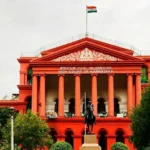The Kerala High Court recently ruled in favor of employees’ rights to choose their medical treatment providers, stating that any circulars issued by government institutions that restrict these rights are in violation of Section 4(2A) of the Employees’ Compensation Act. The case involved an employee of the Food Corporation of India (FCI) who sought treatment from hospitals not included in the FCI’s circular, leading to a challenge by the institution regarding the reimbursement of medical expenses.
Court’s Decision and Reasoning
The High Court emphasized that employees cannot be compelled to seek treatment exclusively from hospitals listed in institution-prepared panels. The Court stated that there is no justification for forcing employees to choose hospitals from a panel prepared by the institution when they can receive the best medical care elsewhere. The right of the employee to seek treatment from the hospital of their choice cannot be curtailed by circulars issued by the institution.
The Court further emphasized that no circular issued by the employer can override the mandate of Section 4(2A) of the Employees’ Compensation Act, which allows for the reimbursement of actual medical expenses incurred by employees for work-related injuries. The Court highlighted the welfare nature of the Employees’ Compensation Act and stated that the purpose of the legislation cannot be defeated by circulars or internal orders passed by the officers of the appellant-Corporation.
Compensation and Assessment
The Employee’s Compensation Commissioner ordered the FCI to compensate the respondent with ₹50,000 along with 12 percent interest, including the medical expenses. However, the FCI appealed the decision, contesting the reimbursement of medical expenses and the Commissioner’s assessment of the respondent’s monthly income.
The Court found the Commissioner’s order inaccurate, as evidence indicated that the respondent’s actual monthly income exceeded the FCI’s claim. Consequently, the Court dismissed the FCI’s appeal and mandated the payment of ₹1,00,000 in compensation along with 12% annual interest for the medical expenses.

